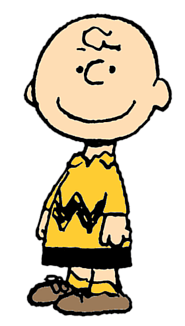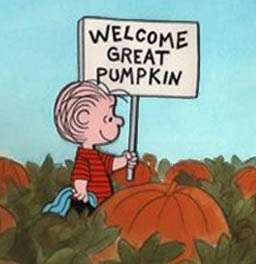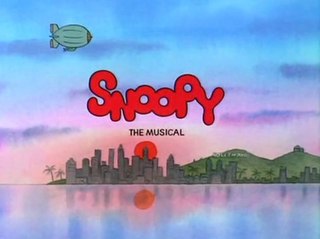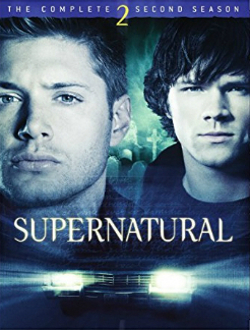Related Research Articles

Peanuts is a syndicated daily and Sunday American comic strip written and illustrated by Charles M. Schulz. The strip's original run extended from 1950 to 2000, continuing in reruns afterward. Peanuts is among the most popular and influential in the history of comic strips, with 17,897 strips published in all, making it "arguably the longest story ever told by one human being". At the time of Schulz's death in 2000, Peanuts ran in over 2,600 newspapers, with a readership of roughly 355 million across 75 countries, and had been translated into 21 languages. It helped to cement the four-panel gag strip as the standard in the United States, and together with its merchandise earned Schulz more than $1 billion. In 2015, a movie adaptation was released by Blue Sky Studios.

A Charlie Brown Christmas is a 1965 animated television special. It is the first TV special based on the comic strip Peanuts, by Charles M. Schulz, and features the voices of Peter Robbins, Christopher Shea, Kathy Steinberg, Tracy Stratford, and Bill Melendez. Produced by Lee Mendelson and directed by Melendez, the program made its debut on the CBS television network on December 9, 1965. In the special, Charlie Brown (Robbins) finds himself depressed despite the onset of the cheerful holiday season. After Lucy van Pelt (Stratford) suggests he direct a neighborhood Christmas play, his best efforts are ignored and mocked by his peers when he chooses a puny Christmas tree as a centerpiece.

Charles "Charlie" Brown is the principal character of the comic strip Peanuts, syndicated in daily and Sunday newspapers in numerous countries all over the world. Depicted as a "lovable loser", Charlie Brown is one of the great American archetypes and a popular and widely recognized cartoon character. Charlie Brown is characterized as a person who frequently suffers, and as a result, is usually nervous and lacks self-confidence. He shows both pessimistic and optimistic attitudes: on some days, he is apprehensive to even get out of bed because he is unable to face the world, but on others, he hopes to accomplish things and is determined to do his best. Charlie Brown is easily recognized by his round head and trademark zigzag patterned shirt. His catchphrase is "Good Grief!"

It's the Great Pumpkin, Charlie Brown is a 1966 American animated Halloween television special based on the comic strip Peanuts by Charles M. Schulz. The third Peanuts special, and the second holiday-themed special, to be created, it was written by Schulz along with director/animator Bill Melendez and producer Lee Mendelson. The cast included Peter Robbins as Charlie Brown, Christopher Shea as Linus Van Pelt, Sally Dryer as Lucy Van Pelt, and Melendez as Snoopy. The special features music composed by jazz pianist Vince Guaraldi, whose contributions include the theme song "Linus and Lucy". It aired on broadcast television every year from its debut in 1966 until 2020 when it became an Apple TV+ exclusive.
The police procedural, police show, or police crime drama is a subgenre of procedural drama and detective fiction that emphasises the investigative procedure of police officers, police detectives, or law enforcement agencies as the protagonists, as contrasted with other genres that focus on non-police investigators such as private investigators (PIs).

Linus Van Pelt is a fictional character in Charles M. Schulz’s comic strip Peanuts. He is the best friend of Charlie Brown, the younger brother of Lucy Van Pelt, and the older brother of Rerun Van Pelt. His first appearance was on September 19, 1952, but he was not mentioned by name until three days later. He was first referred to two months earlier, on July 14. Linus spoke his first words in 1954, the same year he was first shown with his security blanket. Linus is named after Schulz's friend Linus Maurer.

Traditionally, conflict is a major element of narrative or dramatic structure that creates challenges in a story by adding uncertainty as to whether the goal will be achieved. In works of narrative, conflict is the challenge main characters need to solve to achieve their goals. However, narrative is not limited to a single conflict. In narrative, the term resolution refers to the closure or conclusion of the conflict, which may or may not occur by the story's end.

Screenwriting or scriptwriting is the art and craft of writing scripts for mass media such as feature films, television productions or video games. It is often a freelance profession.
In episodic television, a bottle episode or bottle show is an episode produced cheaply and restricted in scope to use as few regular cast members, effects and sets as possible. Bottle episodes are usually shot on sets built for other episodes, frequently the main interior sets for a series, and consist largely of dialogue and scenes for which no special preparations are needed. They are commonly used when one script has fallen through and another has to be written at short notice, or because of budgetary constraints. Bottle episodes have also been used for dramatic effect, with the limited setting and cast allowing for a slower pace and deeper exploration of character traits and motives.

Garfield's Halloween Adventure is a 1985 American animated television special based on the Garfield comic strip. It is directed by Phil Roman and written by Garfield creator Jim Davis, and features the voices of Lorenzo Music, Thom Huge, Gregg Berger and C. Lindsay Workman. It originally aired on CBS on October 30, 1985.

Captain Power and the Soldiers of the Future is a science fiction-action television series, merging live action with animation based on computer-generated images, that ran for 22 episodes in Canadian and American syndication. A toy line was also produced by Mattel, and during each episode there was a segment that included visual and audio material which interacted with the toys. A production of Landmark Entertainment Group, Captain Power and the Soldiers of the Future was created by Gary Goddard and Tony Christopher, and developed by Marc Scott Zicree, with J. Michael Straczynski becoming de facto head writer. Plans to bring the series back, set 28 years after the first series, were announced in July 2016. Goddard Film Group, headed by one of the original series co-creators, Gary Goddard, was one of the development teams working on the new series.

The Great Pumpkin is an unseen character in the comic strip Peanuts by Charles M. Schulz. According to Linus van Pelt, the Great Pumpkin is a legendary personality who rises from the pumpkin patch on Halloween carrying a large bag of toys to deliver to believing children. Linus continues to maintain faith in the Great Pumpkin, despite his friends' mockery and disbelief.

"Mr. Hankey, the Christmas Poo" is the ninth episode of the first season of the American animated television series South Park. It originally aired on Comedy Central in the United States on December 17, 1997. The episode follows Kyle as he feels excluded from the town's Christmas celebrations due to being Jewish, finding solace in Mr. Hankey, a sentient piece of feces. Mr. Hankey does not come alive in the presence of other characters, who consequently think that Kyle is delusional. Meanwhile, the townspeople remove all religious aspects of Christmas to remain politically correct and inoffensive.
Fiction writing is the composition of non-factual prose texts. Fictional writing often is produced as a story meant to entertain or convey an author's point of view. The result of this may be a short story, novel, novella, screenplay, or drama, which are all types of fictional writing styles. Different types of authors practice fictional writing, including novelists, playwrights, short story writers, radio dramatists and screenwriters.

Snoopy! The Musical is the 31st prime-time animated TV special based on characters from the Charles M. Schulz comic strip Peanuts. It is an animated adaptation of the musical of the same name, and originally aired on the CBS network on January 29, 1988.
In literary criticism, an idiot plot is one which is "kept in motion solely by virtue of the fact that everybody involved is an idiot", and where the story would quickly end, or possibly not even happen, if this were not the case. It is a narrative where its conflict comes from characters not recognizing, or not being told, key information that would resolve the conflict, often because of plot contrivance. The only thing that prevents the conflict's resolution is the character's constant avoidance or obliviousness of it throughout the plot, even if it was already obvious to the viewer, so the characters are all "idiots" in that they are too obtuse to simply resolve the conflict immediately.
Script coverage is a filmmaking term for the analysis and grading of screenplays, often within the "script development" department of a production company. While coverage may remain entirely oral, it usually takes the form of a written report, guided by a rubric that varies from company to company. Criteria include, but are not limited to:

Flowers for Algernon is a short story by American author Daniel Keyes, later expanded by him into a novel and subsequently adapted for film and other media. The short story, written in 1958 and first published in the April 1959 issue of The Magazine of Fantasy & Science Fiction, won the Hugo Award for Best Short Story in 1960. The novel was published in 1966 and was joint winner of that year's Nebula Award for Best Novel.

The second season of Supernatural, an American dark fantasy television series created by Eric Kripke, premiered on September 28, 2006, and concluded on May 17, 2007, airing 22 episodes. The season focuses on protagonists Sam and Dean Winchester as they track down Azazel, the demon responsible for the deaths of their mother Mary and father John. They attempt to discover the demon's plan for Sam and other psychic children—young adults who were visited by Azazel as infants and given abilities, and whose mothers often then died in a fire. During their travels, they use their father's journal to help them carry on the family business—saving people and hunting supernatural creatures.
Save the Cat! The Last Book on Screenwriting You'll Ever Need is a 2005 non-fiction book on screenwriting by spec-screenwriter Blake Snyder, exploring plot structure in mainstream film. Snyder's approach has been widely adopted throughout the film industry and the book has remained a bestseller since publication, though it has received criticism for sexism and for offering what is perceived as an overly formulaic view of structure.
References
- ↑ "How to Write Outstanding TV & Movie Loglines: The ULTIMATE Guide". Industrial Scripts®. 2019-06-11. Retrieved 2019-10-01.
- ↑ Brewer (2014 , p. 29)
- ↑ Russell, James (2000). Screen & Stage Marketing Secrets: The Writer's Guide to Marketing Scripts, p.61. James Russell Publishing. ISBN 9780916367114.
- 1 2 Perebinossoff, Philippe; Gross, Brian; and Gross, Lynne S. (2005). Programming for TV, Radio, and the Internet: Strategy, Development, and Evaluation, p.73. Taylor & Francis. ISBN 9780240806822.
- ↑ Steiff, Josef (2005). The Complete Idiot's Guide to Independent Filmmaking, p.57. Penguin. ISBN 9781592573905.
- ↑ Bishop, Lane Shefter (2016). Sell Your Story in A Single Sentence: Advice from the Front Lines of Hollywood , [unpaginated]. Countryman Press. ISBN 9781581575101.
- ↑ "Definition of LOGLINE". Merriam-Webster. December 27, 2024. Retrieved December 29, 2024.
- ↑ "Writing a Logline". Graeme Shimmin. March 2013. Retrieved 2017-09-13.
- ↑ Farnham, Ronald (2011). How to Write a Screenplay in 30 Days or Less, p.51. AuthorHouse. ISBN 9781463440336.
- ↑ "Logline". It's the Great Pumpkin, Charlie Brown . TitanTV. Retrieved 2005-10-25.
- ↑ Brewer (2014, p. 29)
- Brewer, Robert Lee, ed. (2014), 2015 Writer's Market , Cincinnati: Writer's Digest Books, ISBN 978-1-59963-840-9